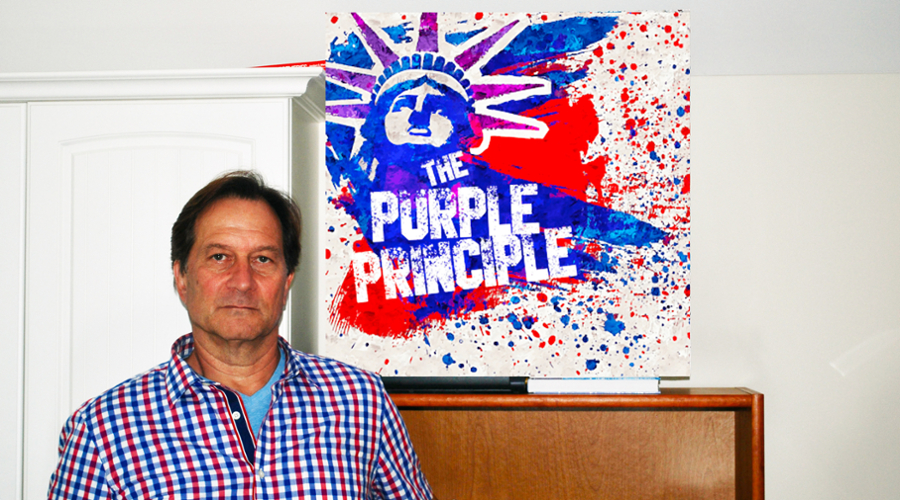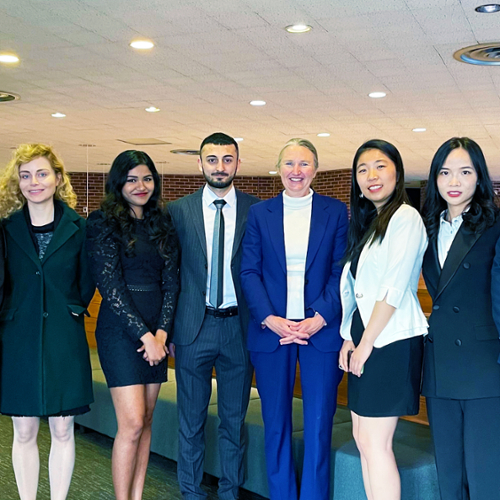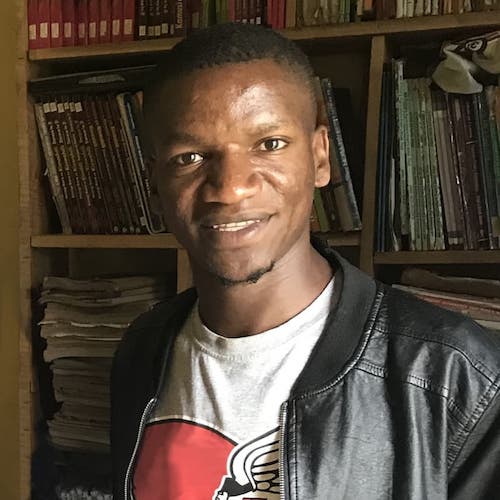Robert Pease, MA’98 left the United States for Beijing in the early 2000s and returned to a country he felt he didn’t quite recognize a few years later.
“I’m old enough to remember when politics wasn’t like this,” said Pease, who now lives near Portsmouth, New Hampshire.
Proudly noting he voted for a range of national candidates, from the late Texas billionaire and independent presidential candidate H. Ross Perot in the 1990s to Bill Clinton to John McCain to Barack Obama, Pease saw more and more people around him taking uncompromising political stances, reinforced by their chosen news outlets and inflamed by social media.
“It’s scary to extrapolate what this looks like in another 40 or 50 years,” he said.
To do his part to cool the temperature, Pease launched
The Purple Principle, a podcast geared toward those who may feel politically homeless and overlooked.
“It’s a podcast for independent-minded Americans about the dangers of polarization,” said Pease.
Having lived for years in one-party states like Singapore and China, Pease said he recognized the influence media can have on the public’s opinions. While American media is not state-controlled, Pease believes partisanship distorts its influence in similar ways.
“That influence compounds ideology,” he said. “I remember in college talking to people and having ideological disagreements, but it didn’t escalate. There wasn’t a sense of us-versus-them on every single issue.”
Pease recruits an impressive roster of thinkers, writers and political practitioners to The Purple Principle, now in its second season, to discuss the psychology of polarization, current political party dynamics and even Hollywood depictions of presidents and how they resonate.
The podcast has earned positive reviews in local newspapers and even features in national outlets like The New York Times, which goosed downloads before the 2020 election.
“We have listeners in every state in the country, with more concentrated in certain states that tend to be politically purple,” said Pease.
Before the podcast, Pease had a career in finance journalism, a job his
master’s in arts in International Economics and Finance helped him land, where he researched and reported on the private equity industry. Since returning from Beijing, he and his wife have been involved in some angel investing, focusing on information technology startups.
Pease said while he has his hands full with The Purple Principle, navigating the very competitive world of podcasts is manageable with the analytical skills he developed in the MA program.
“The ability to analyze data and trends, prioritize how you spend your advertising dollars, how you spend your time and how the people working with you should spend their time, all of that is helped by the analysis you do studying economic issues and financial issues,” Pease said.




